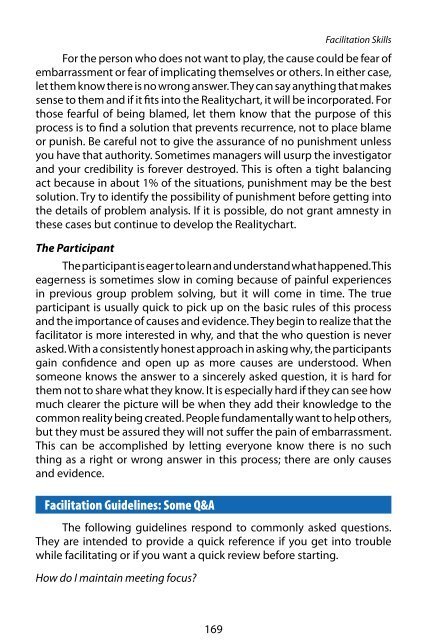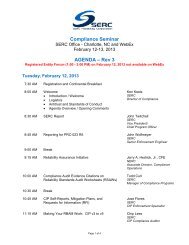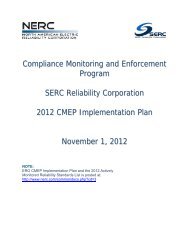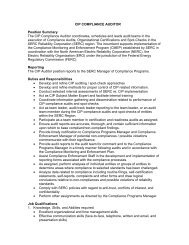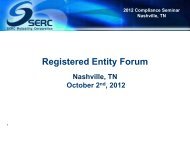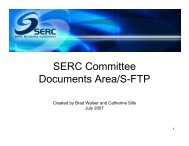RealityCharting e-book .pdf - SERC Home Page
RealityCharting e-book .pdf - SERC Home Page
RealityCharting e-book .pdf - SERC Home Page
- No tags were found...
Create successful ePaper yourself
Turn your PDF publications into a flip-book with our unique Google optimized e-Paper software.
Facilitation Skills<br />
For the person who does not want to play, the cause could be fear of<br />
embarrassment or fear of implicating themselves or others. In either case,<br />
let them know there is no wrong answer. They can say anything that makes<br />
sense to them and if it fits into the Realitychart, it will be incorporated. For<br />
those fearful of being blamed, let them know that the purpose of this<br />
process is to find a solution that prevents recurrence, not to place blame<br />
or punish. Be careful not to give the assurance of no punishment unless<br />
you have that authority. Sometimes managers will usurp the investigator<br />
and your credibility is forever destroyed. This is often a tight balancing<br />
act because in about 1% of the situations, punishment may be the best<br />
solution. Try to identify the possibility of punishment before getting into<br />
the details of problem analysis. If it is possible, do not grant amnesty in<br />
these cases but continue to develop the Realitychart.<br />
The Participant<br />
The participant is eager to learn and understand what happened. This<br />
eagerness is sometimes slow in coming because of painful experiences<br />
in previous group problem solving, but it will come in time. The true<br />
participant is usually quick to pick up on the basic rules of this process<br />
and the importance of causes and evidence. They begin to realize that the<br />
facilitator is more interested in why, and that the who question is never<br />
asked. With a consistently honest approach in asking why, the participants<br />
gain confidence and open up as more causes are understood. When<br />
someone knows the answer to a sincerely asked question, it is hard for<br />
them not to share what they know. It is especially hard if they can see how<br />
much clearer the picture will be when they add their knowledge to the<br />
common reality being created. People fundamentally want to help others,<br />
but they must be assured they will not suffer the pain of embarrassment.<br />
This can be accomplished by letting everyone know there is no such<br />
thing as a right or wrong answer in this process; there are only causes<br />
and evidence.<br />
Facilitation Guidelines: Some Q&A<br />
The following guidelines respond to commonly asked questions.<br />
They are intended to provide a quick reference if you get into trouble<br />
while facilitating or if you want a quick review before starting.<br />
How do I maintain meeting focus<br />
169


